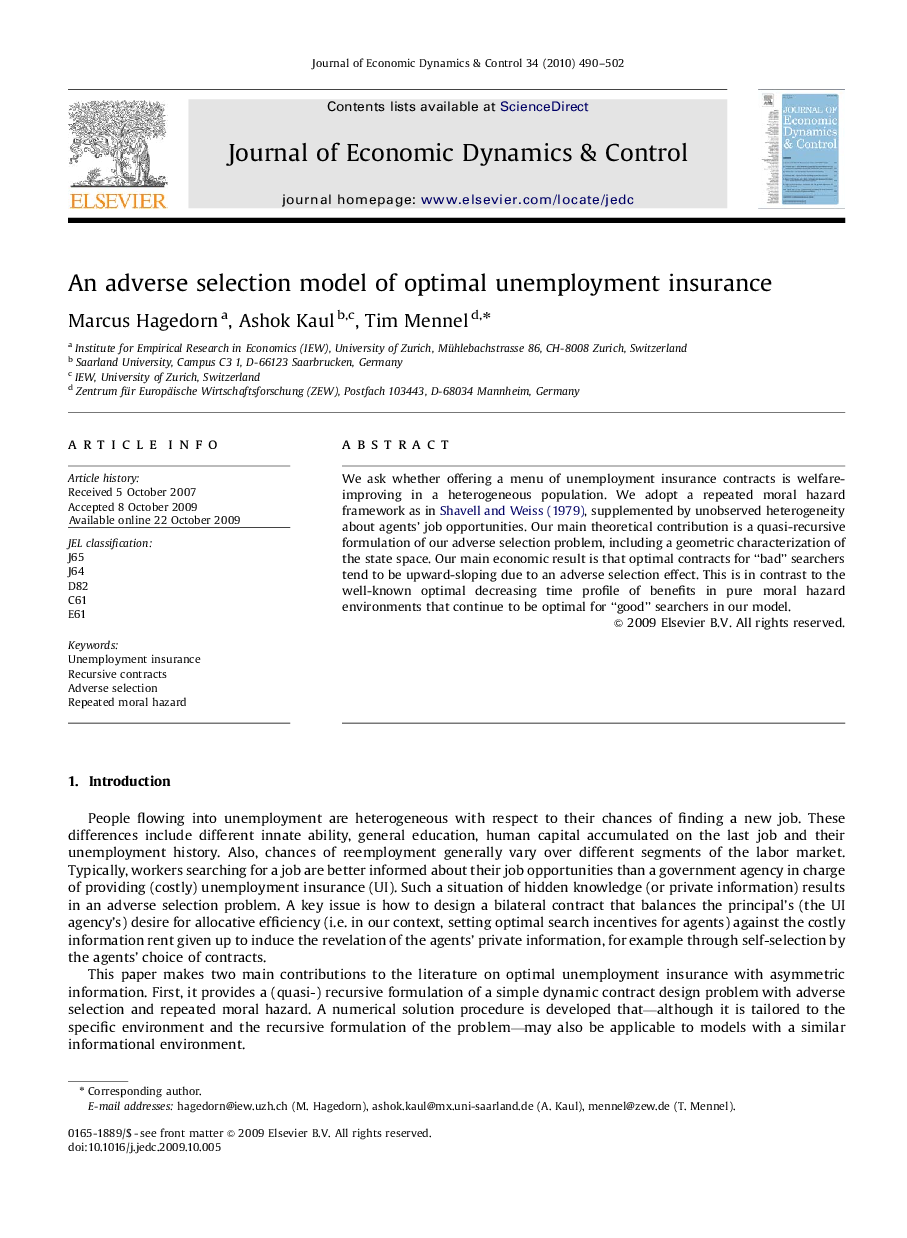| Article ID | Journal | Published Year | Pages | File Type |
|---|---|---|---|---|
| 5099486 | Journal of Economic Dynamics and Control | 2010 | 13 Pages |
Abstract
We ask whether offering a menu of unemployment insurance contracts is welfare-improving in a heterogeneous population. We adopt a repeated moral hazard framework as in Shavell and Weiss (1979), supplemented by unobserved heterogeneity about agents' job opportunities. Our main theoretical contribution is a quasi-recursive formulation of our adverse selection problem, including a geometric characterization of the state space. Our main economic result is that optimal contracts for “bad” searchers tend to be upward-sloping due to an adverse selection effect. This is in contrast to the well-known optimal decreasing time profile of benefits in pure moral hazard environments that continue to be optimal for “good” searchers in our model.
Keywords
Related Topics
Physical Sciences and Engineering
Mathematics
Control and Optimization
Authors
Marcus Hagedorn, Ashok Kaul, Tim Mennel,
